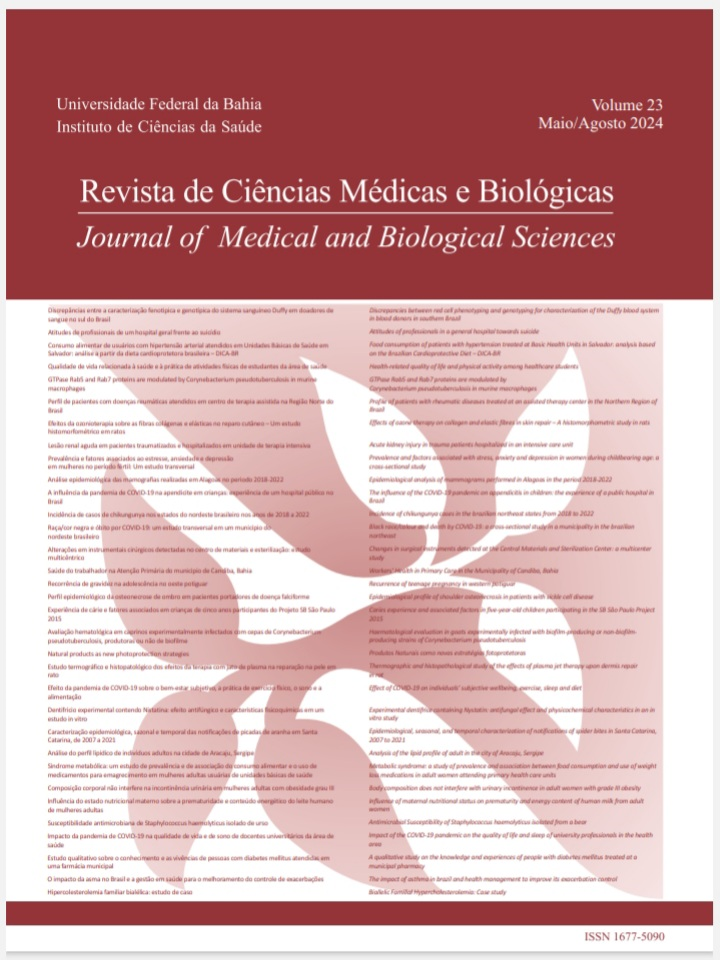ASSESSMENT OF THE EFFECT OF COVID-19 ON INDIVIDUALS’ SUBJECTIVE WELLBEING, EXERCISE, SLEEP AND DIET
DOI:
https://doi.org/10.9771/cmbio.v23i2.55203Palabras clave:
SARS-CoV-2, Health habits, Physical exercise, Sleep, Eating habitsResumen
The COVID-19 pandemic changed people’s lives in ways that affected subjective well-being (SWB) and lifestyle. Objective: To evaluate SWB during the COVID-19 pandemic and its effects on physical exercise, sleep and nutrition. 72 men and women ages 20 to 60 were assessed for lifestyle before and during the pandemic, and SWB was evaluated during the pandemic. The negative affect dimension had the highest score (3.77 ± 0.71) among the SWB spheres. The pandemic has reduce in the practice of physical exercise in 61% of the participants who practiced physical exercise before the pandemic (p = 0.001). An increase in total sleep time (TST) (p = 0.0003) and improvement in sleep quality were observed during the pandemic, and the individuals reported more sleep time said they did so to take care of their health (p = 0.001). Regarding eating habits, 79.12% of the participants considered their diet to be healthy, 34.72% improved their diet and 58.3% increased their appetite. There was a predominance of negative effects in relation to SWB, and these feelings may have been associated with reduced physical exercise. Social distancing resulted in an increase in TST and did not promote changes in eating habits.
Descargas
Descargas
Publicado
Cómo citar
Número
Sección
Licencia
Derechos de autor 2024 Journal of Medical and Biological Sciences

Esta obra está bajo una licencia internacional Creative Commons Atribución 4.0.
A Revista de Ciências Médicas e Biológicas reserva-se todos os direitos autorais dos trabalhos publicados, inclusive de tradução, permitindo, entretanto, a sua posterior reprodução como transcrição, com a devida citação de fonte. O periódico tem acesso livre e gratuito.






